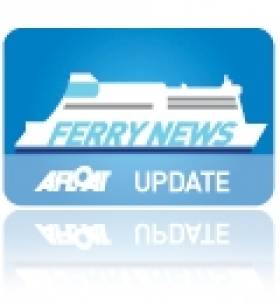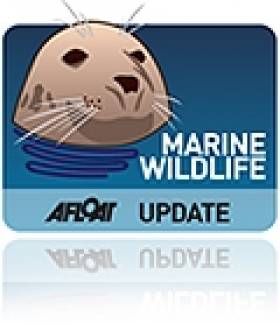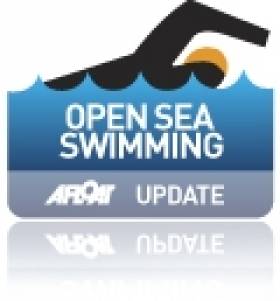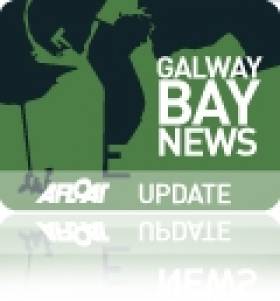Displaying items by tag: English Channel
Bodies Found In Search For Missing Trawler In English Channel
#Missing - BBC News reports that two bodies have been recovered from the sea in the search for four fishermen whose trawler went missing in the English channel this week.
Lifeboat crews from Dungeness, Dover and Hastings RNLI stations yesterday (29 January) resumed their part in a major search for the Belgian fishing boat, which vanished from radio contact on Wednesday (28 January) some 10 miles south of Dungeness.
They joined search and rescue helicopters, vessels from the French authorities, a Trinity House boat and several other fishing trawlers in what was expected to be "a long, protracted search of the channel", according to RNLI divisional operations manager Allen Head.
At 3pm yesterday debris was identified 20 miles southeast of Dungeness, in French territorial waters, and the lifeboats continued to search the area until they were recalled by the coastguard.
However later in the evening two bodies were discovered in the sea off Boulogne in northern France, some 30 miles across the channel from Dungeness. BBC News has more on the story HERE.
Another Blow to UK South Coast Ports As Route Faces Closure
#EnglishChannel - DFDS Seaways plan to close Portsmouth-Le Havre route later this year, the announcement follows partners LD Lines which closed services also from another UK south coast port to Spain just over a week ago, writes Jehan Ashmore.
According to the Danish owned DFDS, they cite the closure is due to continued losses and that they have held consultations with French unions. The route carried 185,000 passengers and 480,000 lane-metres of freight in 2013 generating revenues of DKK 165m.
The route forms a network of English Channel and Mediterranean services run in a partnership between DFDS Seaways and Louis Dreyfus Armatuers (LDA) through is ferry brand LD Lines now reduced to the St.Nazaire-Gijon route and a France-Tunisia link.
As previously reported, LD Lines 'Irish' leg of the Spanish landbridge route was closed last month, when the service was withdrawn between the French port and Rosslare.
Returning to the Portsmouth-Le Havre route, this is served by a time-chartered ro-pax ship, understood to be Seven Sisters (2005/18,940grt). The French-flagged vessel and crew will be redelivered to her owners at the end of 2014.
According to DFDS, a number of initiatives to improve the route's financial performance since the route was taken over from (LDA) in 2012 have had limited effect, yet leaving LD Lines to continue running their remaining services in the partnership.
DFDS also claim given unsatisfactory financial results, the measures already taken and new EU sulphur emission rules coming into force on 1 January 2015, the route does not have a viable future.
Another DFDS route, Harwich-Esbjerg which is not part of the partnership with LD Lines is to close later this month. The withdrawal of what is the only ferry service connecting UK and Scandinavian is once again due in part to the introduction of sulphur directives.
Shark Attack in English Channel Captured on Video
#SHARK ATTACK - The UK Sun has posted a dramatic video of the moment when two anglers in the English Channel were attacked by sharks.
Graeme Pullen and Wayne Comben had been fishing for Mako sharks to tag and release off Falmouth in Cornwall, as part of a marine wildlife conservation programme, when their 17-foot boat was suddenly surrounded by a school of blue sharks.
The three sharks were described by Pullen as being in a "frenzied state" during the three-minute assault.
“Normally they would hold back and wait to see if there was any food drifting free but these were very aggressive and just charged directly at the boat," he said.
“One of them came out of the water and launched an all-out attack on the bag of fish, biting and tearing it to pieces — it was very worrying to witness."
Pullen concurred with experts' belief that such sharks are coming closer to land to hunt as overfishing in the Atlantic has all but wiped out their food supply.
Irishman Dies in English Channel Swim Attempt
#SWIMMING TRAGEDY - RTÉ News reports that an Irishman has died while attempting to swim solo across the English Channel.
Páraic Casey, 45, was less than 1km from the French coast and more than 16 hours into the crossing when he took ill in the early hours of Sunday morning.
He could not be resuscitated despite the immediate efforts of safety personnel.
The swimmer from Passage West in Co Cork has begun the open sea crossing just after 9am on Saturday to raise funds for St Vincent de Paul and St Patrick's Marymount Hospice.
According to The Irish Times, he had passed a standard medical examination, had completed the necessaary training and was wearing a wetsuit for the swim.
Casey is survived by his wife Riana, who described him as “amazing”.
Dublin Woman First to Cross Galway Bay Twice
The Irish Times reports that a Dubliner has become the first woman to swim across Galway Bay twice.
Sorcha Barry, who works as a physiotherapist, completed the gruelling 26km swim last weekend as part of the annual Frances Thornton Memorial Galway Bay Swim in aid of Cancer Care West.
Barry was joined in her effort by Kevin Thornton, son of the late Frances Thornton, with the duo completing the swim in 5 hours, 41 minutes.
The Dubliner is currently in training to cross the English Channel next month.
The Irish Times has more on the story HERE.

































































